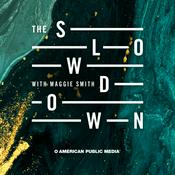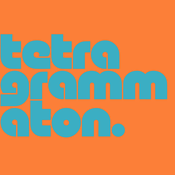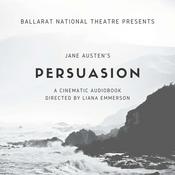172 episodes

Nile Green, "Serendipitous Translations: A Sourcebook on Sri Lanka in the Islamic Indian Ocean" (U Texas Press, 2026)
07/1/2026 | 1h 2 mins.
Sri Lanka has long sat astride the monsoon winds between the Bay of Bengal and the Arabian Sea – a small island at the centre of a very big story. For over a thousand years, Muslim pilgrims, merchants, scholars, and soldiers have passed through “Lanka” or “Sarandib”, leaving traces in Arabic, Tamil, Persian, Malay, Ottoman Turkish, Urdu, Dhivehi, and Sinhala. Serendipitous Translations: A Sourcebook on Sri Lanka in the Islamic Indian Ocean (University of Texas Press, 2026) brings together many of those voices for the first time in English. From medieval travellers marvelling at Adam’s Peak to modern novelists and newspaper editors wrestling with reform, nationalism, and civil conflict. Dr. Nile Green holds the Ibn Khaldun Endowed Chair in World History at UCLA. A former Guggenheim Fellow, he is the celebrated author of ten monographs and the editor of seven books and several journal issues, with a particular focus on Islam and the Indian Ocean world. He also hosts the excellent podcast Akbar’s Chamber: Experts Talk Islam. Dr. Ahmed AlMaazmi is Assistant Professor of History at the United Arab Emirates University. His research explores the intersections of empire, occult sciences, slavery, law, environmental infrastructures, and material culture in the Arabian Peninsula and the wider Indian Ocean world. Learn more about your ad choices. Visit megaphone.fm/adchoices Support our show by becoming a premium member! https://newbooksnetwork.supportingcast.fm/indian-ocean-world

Rituparna Patgiri and Gurpinder Singh Lalli eds., "Food, Culture and Society in India: Social, Political, Economic and Cultural Perspectives" (Berghahn Books, 2025)
13/12/2025 | 35 mins.
Exploring the entangled relationships between food, culture and society in India, this edited collection Food, Culture and Society in India: Social, Political, Economic and Cultural Perspectives (Berghahn Books, 2025) brings together empirically grounded research across diverse regions and contexts. Organised into four sections – Food, Culture and Identity; Food, Memory and Migration; Food, Livelihood and Nutrition; and Food, Consumption and Media – it highlights the complex role food plays in shaping identity, mobility, labour and representation. Drawing from a range of disciplinary perspectives, the volume contributes to broader conversations in sociology, social anthropology, international development, geography, cultural studies and food studies, offering a textured account of contemporary foodways and their significance in everyday Indian life. Dr. Tiatemsu Longkumer, Senior Lecturer in Anthropology at Royal Thimphu College, Bhutan, researches indigenous religion and Christianity among the Nagas, Buddhism in Bhutan, and Generative AI in education. Learn more about your ad choices. Visit megaphone.fm/adchoices Support our show by becoming a premium member! https://newbooksnetwork.supportingcast.fm/indian-ocean-world

Isabelle Guérin et. al., "The Indebted Woman: Kinship, Sexuality, and Capitalism" (Stanford UP, 2023)
29/11/2025 | 55 mins.
In The Indebted Woman: Kinship, Sexuality, and Capitalism (Stanford UP, 2023), the authors Isabelle Guérin, Santosh Kumar and G. Venkatasubramanian conceptualise how gender, debt, and capitalism are related. For over ten years, the researchers have been working in the Indian countryside of east-central Tamil Nadu, observing a credit market that specifically targets Dalit women. The book highlights not only the ways how credit is distributed, but also how it is repaid. Combining in-depth ethnography with statistical surveys and financial diaries advanced the understanding of how Dalit women deal with debt, exposing the ways in which capitalism shapes womanhood. The authors' nuanced attention to body, identity, caste, and class provides a comprehensive theory of the sexual division of debt for the first time. Isabelle Guérin is Senior Research Fellow at the French Institute of Research for Sustainable Development, and Associate at the French Institute of Pondicherry. Santosh Kumar is a part-time researcher and founder and head of the Mithralaya School of music, dance, and arts. G. Venkatasubramanian has been a sociologist and Research Fellow at the French Institute of Pondicherry for the past thirty-five years. Sarah Vogelsanger is a researcher on social justice, gender, art and migration, based in London. Learn more about your ad choices. Visit megaphone.fm/adchoices Support our show by becoming a premium member! https://newbooksnetwork.supportingcast.fm/indian-ocean-world

Fahad Ahmad Bishara, "Monsoon Voyagers: An Indian Ocean History" (U California Press, 2025)
27/11/2025 | 45 mins.
In 1924, the Al-A‘waj, also known as the Crooked, set sail from Kuwait on a trading journey around the Persian Gulf, through the Strait of Hormuz, to Western India and, eventually, back to the Gulf. Dhows had sailed this route for centuries—and would continue to sail it for a few more decades still. Fahad Ahmad Bishara talks about this specific 1924 journey in his book Monsoon Voyagers: An Indian Ocean History (U California Press, 2025). As the Crooked travels the waters of the Indian Ocean, Fahad covers topics like international law, the importance of debt, piracy, how information spread from port to port, and the Arab diaspora (among many other topics) Fahad is Associate Professor of History and Rouhollah Ramazani Professor of Arabian Peninsula and Gulf Studies at the University of Virginia. He is also the author of A Sea of Debt: Law and Economic Life in the Western Indian Ocean, 1780–1950. You can find more reviews, excerpts, interviews, and essays at The Asian Review of Books, including its review of Monsoon Voyagers. Follow on Twitter at @BookReviewsAsia. Nicholas Gordon is an editor for a global magazine, and a reviewer for the Asian Review of Books. He can be found on Twitter at @nickrigordon. Learn more about your ad choices. Visit megaphone.fm/adchoices Support our show by becoming a premium member! https://newbooksnetwork.supportingcast.fm/indian-ocean-world

Anand P. Vaidya, "Future of the Forest: Struggles over Land and Law in India" (Cornell UP, 2025)
13/11/2025 | 1h 23 mins.
In Future of the Forest: Struggles over Land and Law in India (Cornell UP, 2025), Anand P. Vaidya tells the story of the making and unmaking of India’s Forest Rights Act 2006, a law enacted to secure the largest redistribution of property in independent India by recognising the tenure and use rights of millions of landless forest dwellers. Beginning with the devastating destruction of a north Indian village Vaidya calls Ramnagar, inhabited by landless Dalits and Adivasis, the book follows the interventions of activists, forest dwelling communities, political parties, and corporations during the drafting of the law and traces how each of these coalitions shapes the law’s implementation. Vaidya shows how this ambitious law became a battleground of competing legal potentialities — at once a tool of exclusion, dividing forest dwellers along caste and class lines, and yet a platform for resistance, enabling forest dwellers to challenge State domination. A multi-scalar study, Future of the Forest is attentive to the everyday politics of staking a forest rights claim, revealing how the law opens space for fluid (and often extralegal) interpretations, shifting political authority, and diverging aspirations. Anand Vaidya is Associate Professor of Anthropology at Reed College. Raghavi Viswanath is a postdoctoral researcher and teaching fellow at SOAS, University of London. Her research, supported by the Leverhulme Trust, examines how pastoralists claim grazing rights under India’s Forest Rights Act 2006 and how the everyday processes of staking such claims has been impacted by the authoritarian turn in India. LinkedIn. Email: [email protected] Learn more about your ad choices. Visit megaphone.fm/adchoices Support our show by becoming a premium member! https://newbooksnetwork.supportingcast.fm/indian-ocean-world
More Arts podcasts
Trending Arts podcasts
About New Books in the Indian Ocean World
Listen to New Books in the Indian Ocean World, This Life of Mine with James Corden and many other podcasts from around the world with the radio.net app
Get the free radio.net app
- Stations and podcasts to bookmark
- Stream via Wi-Fi or Bluetooth
- Supports Carplay & Android Auto
- Many other app features
Get the free radio.net app
- Stations and podcasts to bookmark
- Stream via Wi-Fi or Bluetooth
- Supports Carplay & Android Auto
- Many other app features

New Books in the Indian Ocean World
download the app,
start listening.





































